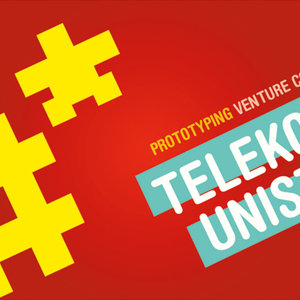Worker Owned and Operated
Telekommunisten is controlled by it’s workers and committed to staying that way, we believe we can serve our customers best and at the lowest cost by remaining focused on meeting the needs of our workers and customers, not on profits for outside shareholders. Being worker-owned means that all the money you spend on our products goes directly to the maintenance and improvement of the service you receive. We are committed to free software, social justice, environmental protection, international development and building a worker-controlled economy.
We believe that capitalism and the resulting global dominance of undemocratic corporations are the source of poverty, inequality, war and environmental catastrophe.
We believe a solution can be found in workers autonomously organizing their own production. Without the theft of labour’s product, the oligarchs would not have the wealth to control corrupt politicians and fund immoral wars.
Prototyping Venture Communism
Venture Communism is a form of worker’s self organization which provides a model of sharing property and forming mutual capital that is compatible with anti-capitalist ideals. However, venture communism does not provide a means of acquiring such property in the first place. Telekommunisten is intended to realize possibilities in forming the privative mutual property required to initiate venture communism.
The lack of any initial financing, most forms of which would be incompatible with the venture communist principal of ownership as a reward for labour not wealth, present twin challenges for a proto-venture-communist enterprise to overcome: Forming capital and finding customers. The first challenge in essence requires breaking the Iron Law of Wages, the implications of which are that worker’s can never form capital because they can never earn any more than their subsistence cost from wages alone.
The primitive accumulation theory of Telekommunisten proposes to break the Iron Law by exploiting it’s boundary conditions, namely that some labour is scarce, and therefore captures a form of scarcity rent in addition to wages and that some forms of capital are themselves commodities, and therefore can not even capture interest, more to the point, often these forms of capital are common inputs to production and are subsidized by private and public funds and are available on the market for below their own reproduction costs.
Therefore, the Iron Law can be broken if you are able to invest scarce labour and employ commodity capital in production. An obvious example of such commodity capital is basic telephone and internet infrastructure, which connects the farthest reaches of the globe together, built almost entirely with public money and available to be exploited for far less than it’s real cost. And likewise, an obvious example of the needed scarce labour investment is the IT and media skills required to derive new products from basic internet and telephone service.
Thus, Telekommunisten propose to form the primitive mutual property required to initiate venture communism by collective investment in the form of IT and media labour using only commonly available internet resources to derive marketable products. The first of these products is Dialstation, which allow any land line or mobile telephone to make very inexpensive international phone calls.
The second challenge, finding customers without any initial financing for marketing, is addressed by linking the artistic and political nature of the project very closely with our products, therefore we promote products such as Dialstation as a matter of course in our artistic production and our participation in the activist and hacker communities. Our basic premise is that people will use and promote our products if they identify with our artistic and political practices, and in turn the economy generated can support and expand these practices.
The Revolution Is Calling
Telekommunisten is founded on the broad revolutionary possibilities introduced by the ability of individuals to instantly interact on a global scale.
On it’s own, neither venture communism nor the primitive accumulation theory of Telekommunisten is remarkably novel or revolutionary, these just address basic economic facts that any collective enterprise must address, and indeed history is full of related ideas, practices and attempts.
Any revolutionary theory must be founded on revolutionary conditions, not simply interesting ideas. The emergence of peer networks such as the Internet creates such conditions.
The society we live in, and societies everywhere and always, are composed of social relationships, the relationships of production, in particular, form the economic capacities required to impose social and cultural structures. The relations of production constitutes the economic structure of society,on which arises the legal and political structures that define it.
New kinds of relationships, if they can can create new productive relations, can thus constitute a new economic structure which is able to give rise to a new kind of society. Capitalism, the current dominant form of society, depends on the extraction of interest and rent for it’s subsistence and growth. Capturing interest and rent by way of the theft of surplus value depends on State granted title and State enforced privilege.
Communications based on global peer networks have a chance to resist and evade such title and privilege. Examples of this include the fact that Free Software, whose production depends on peer networks, does not capture rent or interest, and popular attacks on the rents captured by the Recording and Movie Industries by users of file sharing technologies, show us the difficulties faced by those whose incomes depends on controlling reproduction.
It is clear we now have new forms of relationships that have never existed before, and therefor communicating in these new ways, especially when this communication becomes a component of production, is the making of the new society. The Revolution is sending email. The Revolution is chatting, The Revolution is posting articles. The Revolution is file sharing.
The Revolution is calling.



